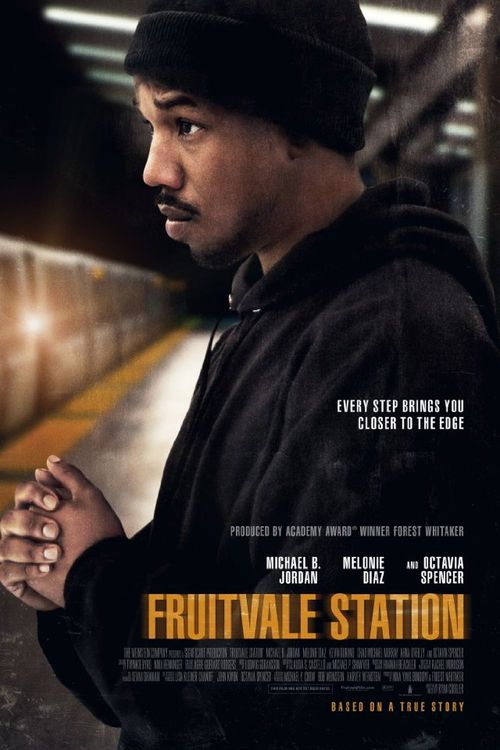Fruitvale Station
Directed by: Ryan Coogler Cast: Michael B. Jordan, Melonie Diaz, Octavia Spencer Running Time: 1 hr 30 mins Rating: R Release Date: July 19, 2013 (Chicago)
PLOT: A day in the life of Oscar Grant (Jordan), who was killed in a California transit stop on New Year's Day.
WHO'S IT FOR? Everybody. If you think people are specifically good or bad, see this movie.
OVERALL
Even if we read the accompanying piece, we only understand news subjects as headline characters. Name, age, location, maybe a line or two about their occupation, or something about the person having kids. These people are not real to us. We do not know them in a way that goes beyond factual; we are often more intimate with their news-making tragedy than we are with any other real part of their life.
In the fantastic film Fruitvale Station, in one day (or 90 minutes) a full life is restored to a human being previously known simply as a news subject. Showing us the life of Oscar Grant the day before he was killed in a California transit station, we get a very big picture of Oscar Grant in little parts. Through a swift-moving set of events, we see him as he mixes numerous emotional shades. This is a presentation of a man who transcends the simple descriptions of being a nice guy, or even a promising ex-criminal.
Portraying a young black male, a character type rarely given a fair amount of space in modern movies, Jordan is remarkable as Grant. Able to play into this expansive character's range, Jordan shows us various sides to this real life character, and is so capably able to snap between the two. Jordan can look so sweet with his radiant smile, but in an instance he can turn into a snarling dog, providing an even wider perspective about this story's true character, and his complicated story. In Fruitvale Station Jordan is not able to just tune into contrasting emotions from challenging characteristics, but fully amplify them.
With Fruitvale Station marking the very promising debut of his earnest storytelling talents, writer/director Coogler shows incredible control over tone with even his most dangerous aspects. His recreation of the film's shocking first home video visuals are packaged with thorough intensity, while maintaining a consistent respect for the real emotions from the moments themselves. Though he is making a film about a real human being whose life concludes the film with tragedy, Coogler does not have the interest to manipulate the atmosphere of drama; he does not use Oscar as a device for maudlin as so many directors could be accused of doing. Oscar's death is not the story of a murdered perfectly behaved human, or any other type of protective angle insincere to the reality of imperfection inherent with all people. Instead, Coogler stands with the audience in equal disbelief of such a terrible event, mourning most of all the tragedy of hope losing to pessimism, the unexpected finale of a life story arc concluded too soon for us to see what happens in the third act.
As wonderful as this film may be, a couple of mistakes do slip through the cracks when it comes to Fruitvale Station's artistic subtlety that charges this film from beginning to end. Essentially, the film is confused on how to end itself. The last narrative frames leave an audience hanging on a character's obvious glance, later obnoxiously rhymed with epilogue documentary footage that essentially does the same thing. The film's biggest act of injustice, these two segments push Fruitvale Station towards being the obituary that it is not.
Fruitvale Station ends with a catastrophe, but the movie has a definitively incredible positive spirit from its first words about rebirth to its final hospital scenes that set it far beyond the directness of a narrative news story, or an outraged tale that screams injustice. In a movie full of impressive storytelling feats, perhaps that is Coogler's greatest triumph - to show the vitality of unconquerable good in the face of awful human tragedy.
FINAL SCORE: 9/10
